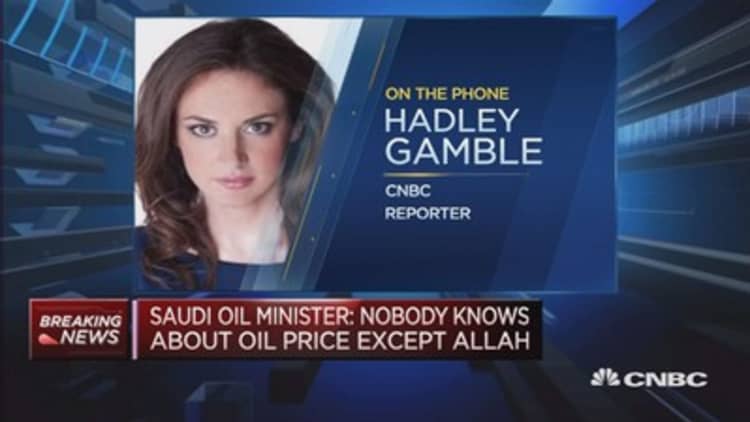
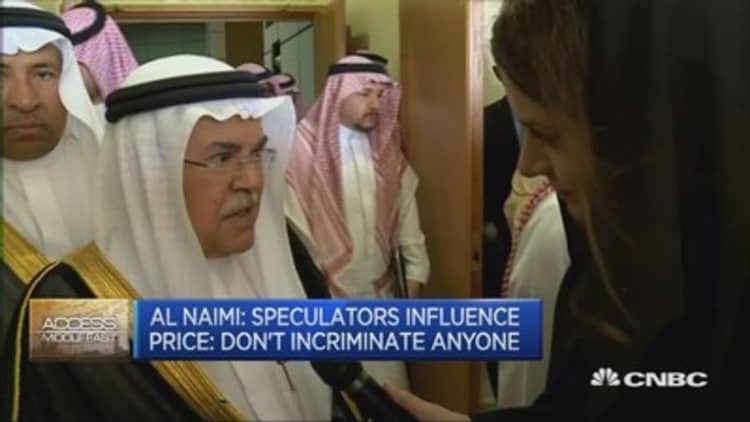
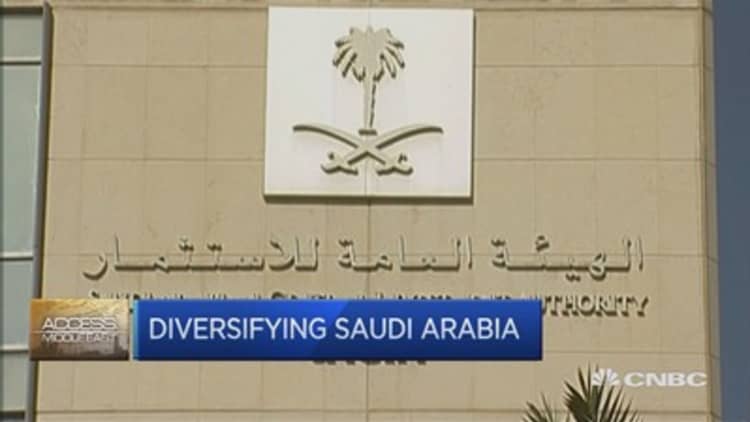
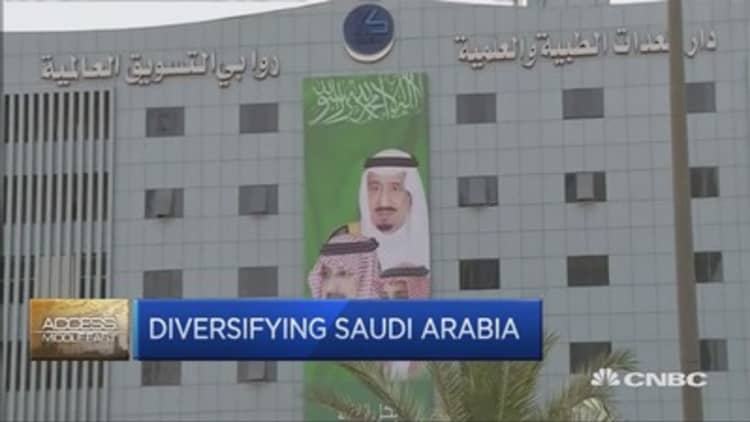
With speculation rife over how long Saudi Arabia is content to see oil prices slump, the country's oil minister told CNBC that only Allah knows where prices are heading.
Influential Saudi Oil Minister, Ali Al-Naimi, told CNBC Tuesday that "no one can set the price of oil - it's up to Allah." The remark comes amid widespread speculation over how long Saudi Arabia will maintain its decision not to cut production - a move that could support prices.
Al-Naimi insisted that he was "not worried at all" about the prospect of Iranian crude coming back onto the market if sanctions on Iran are lifted as part of an international nuclear deal. Such a move could drive prices lower, as it would add to the global glut in supply.
His comments come after a tumultuous twelve months for oil. The price of benchmark Brent crude has fallen from a high of $114 a barrel last June to six-year lows in January on the back of this over-supply and lack of demand.
Prices have recovered somewhat over recent weeks on the back of a decline in U.S. rig counts and geopolitical tensions in the Middle East, which have taken supply out of the market. On Monday, Brent hit a 2015 peak of $67.10 a barrel.
Read MoreBeware, oil rally is 'premature': Analyst
However on Tuesday, Brent crude oil futures slipped towards $66 a barrel on news that Saudi Arabia was considering halting bombing in Yemen to allow the delivery of aid, which eased concerns about oil supply from the Middle East. U.S. crude oil futures fell by 22 cents to $58.72 a barrel.
The decline in oil prices over the past year has been exacerbated by the Organization of the Petroleum-Exporting Countries (OPEC)—the group of 12 oil-producing countries led by Saudi Arabia—which last year opted to keep production at 30 million barrels a day in order to retain market share and, it is speculated, put rival U.S. producers out of business.
Diversifying?
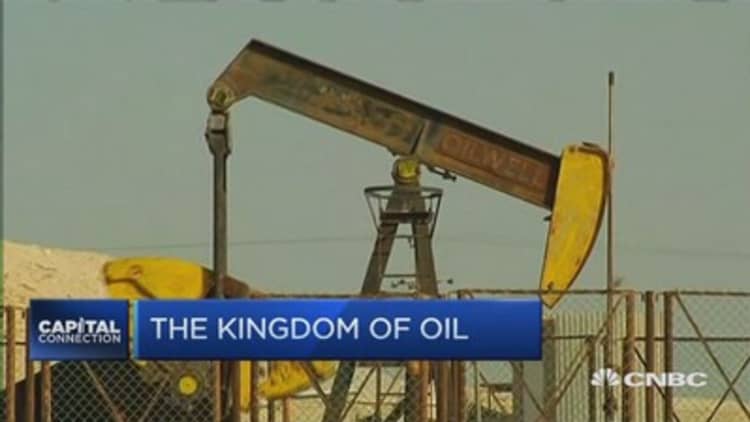
Against the backdrop of subdued energy prices and rising geopolitical tensions in the Middle East, Saudi Arabia is attempting to diversify its economy away from oil.
Abdullatif Al-Othman, governor of the Saudi Arabian General Investment Authority, told CNBC that the country was ready to diversify.
"You have traditional sectors such as oil and gas, energy, utility and downstream chemicals and this is where we say we need to grow and capture the value—but also we have new sectors that are coming up," he said in an interview broadcast on Tuesday.
"The government is spending a lot of money on healthcare, transportation and logistics, the Information Communications Technology (ICT) sector and the mining sector. There is strong push to increase research and development, education, training and human capital development in Saudi Arabia."
Bourse to open to foreigners
Saudi Arabia is set to open up its $575 billion bourse to foreigner investors on June 15, but announced on Monday that none would be allowed to own more than 10 percent of the stock market by value.
Fund managers estimate the market could attract $50 billion or more in foreign direct investment, if it is included in global indexes, according to Reuters.
Al-Othman said the move was "exciting" for Saudi Arabia, which would benefit from foreign investors' experience of "due diligence and accountability and governance." These institutional investors, meanwhile, would gain from Saudi's "very well-established capital markets and quite impressive corporates."
"So it's a win win (situation)," he said.
- By CNBC's Holly Ellyatt and Hadley Gamble, follow them on Twitter @HollyEllyatt and @_HadleyGamble. CNBC Arabia's Attala Al-Shmer also contributed to this report.

